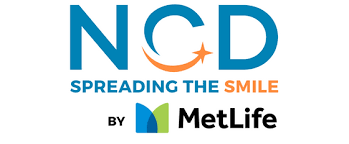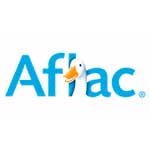Medicare Supplement Insurance
A Medicare Supplement Insurance (Medigap) policy can help pay some of the health care costs that Original Medicare doesn’t cover, like copayments, coinsurance, and deductibles.
Some Medigap policies also offer coverage for services that Original Medicare doesn’t cover, like medical care when you travel outside the U.S. If you have Original Medicare and you buy a Medigap policy, Medicare will pay its share of the Medicare-approved amount for covered health care costs. Then your Medigap policy pays its share.
A Medigap policy is different from a Medicare Advantage Plan. Those plans are ways to get Medicare benefits, while a Medigap policy only supplements your Original Medicare benefits.

8 Things to Know About Medigap Policies
- You must have Medicare Part A and Part B.
- If you have a Medicare Advantage Plan, you can apply for a Medigap policy, but make sure you can leave the Medicare Advantage Plan before your Medigap policy begins.
- You pay the private insurance company a monthly premium for your Medigap policy in addition to the monthly Part B premium that you pay to Medicare.
- A Medigap policy only covers one person. If you and your spouse both want Medigap coverage, you’ll each have to buy separate policies.
- You can buy a Medigap policy from any insurance company that’s licensed in your state to sell one.
- Any standardized Medigap policy is guaranteed renewable even if you have health problems. This means the insurance company can’t cancel your Medigap policy as long as you pay the premium.
- Some Medigap policies sold in the past cover prescription drugs, but Medigap policies sold after January 1, 2006 aren’t allowed to include prescription drug coverage. If you want prescription drug coverage, you can join a Medicare Prescription Drug Plan (Part D).
- It’s illegal for anyone to sell you a Medigap policy if you have a Medicare Medical Savings Account (MSA) Plan.
Medigap Policies Don’t Cover Everything
Medigap policies generally don’t cover long-term care, vision or dental care, hearing aids, eyeglasses, or private-duty nursing.
Insurance Plans That Aren’t Medigap
Some types of insurance aren’t Medigap plans, they include:
- Medicare Advantage Plans (like an HMO, PPO, or Private Fee-for-Service Plan)
- Medicare Prescription Drug Plans
- Medicaid
- Employer or union plans, including the Federal Employees Health Benefits Program (FEHBP)
- TRICARE
- Veterans’ benefits
- Long-term care insurance policies
- Indian Health Service, Tribal, and Urban Indian Health plans
Dropping your entire Medigap policy (not just the drug coverage)
If you decide to drop your entire Medigap policy, you need to be careful about the timing. For example, you may want a completely different Medigap policy (not just your old Medigap policy without the prescription drug coverage), or you might decide to switch to a Medicare Advantage Plan that offers prescription drug coverage.
If you drop your entire Medigap policy and the drug coverage wasn’t creditable prescription drug coverage or you go 63 days or more in a row before your new Medicare drug coverage begins, you have to pay a late enrollment penalty when you join a new Medicare drug plan.
Whole Life Insurance
These policies have coverage that remains active throughout the policy owner’s Life. Premiums are required to be paid on the policy until the insured dies or reaches age loo. After the death of the insured, the policy will pay the face amount of the policy. Whole-life policies also develop cash value that accumulates each year as long as premiums are continuously paid.
Whole life insurance typically requires that the owner pay premiums for the life of the policy. There are some arrangements that let the policy be ‘paid up., which means that no further payments are ever required in as few as 5 years or with even a single large premium. Typically if the payer doesn’t make a large premium payment at the outset of the life insurance contract, then he is not allowed to begin making them later in the contract life. However, some whole-life contracts offer a rider to the policy, which allows for a one-time, or occasional., large additional premium payment to be made as long as a minimal extra payment is made on a regular schedule. In contrast, Universal life insurance generally allows more flexibility in premium payment.

Term Life Insurance

Originally, Medicare covered people age 65 and over. Later, the program expanded to include people with permanent disabilities as well as ESRD, or end-stage renal disease (severe kidney disease). There are a few extra eligibility requirements, however. To receive Medicare, you have to be eligible for Social Security. For someone age 65 or over, this means you have to have worked for a minimum of ten years (non-consecutive) at a job that withheld Social Security from your pay. People under age 65 can sometimes receive Social Security. but they are still not eligible for Medicare until they turn 65. While changes to Social Security will push the age at which benefits begin to 67, Medicare eligibility will still start at 65.
People with disabilities or ESRD who want Medicare coverage have to meet the Social Security Administration’s definition of permanently and totally disabled or end-stage renal disease, respectively.
Hospital Indeminity
The Basics
Hospital Indemnity plans provide a benefit for every day one is hospitalized. The plans pay out regardless of the amount of hospital expenses actually incurred. They are typically used as supplemental coverage.
Hospital indemnity insurance provides a fixed daily, weekly or monthly benefit while the insured is confined in a hospital. The payment is not dependent on actual hospital charges, and is most commonly expressed as a flat dollar amount. Hospital indemnity benefits are paid in addition to any other benefits that may be available, and are typically used to pay out-of-pocket and non-covered expenses associated with the primary medical plan, and to help with additional expenses (e.g., child care) incurred while in the hospital.
What Do The Plans Cover & Cost?
These plans do not cover all the hospital expenses but often they do reimburse deductibles and coinsurance payments by paying a specified amount directly to the policy owner each day they are hospitalized. Depending on the amount of coverage that is purchased, one can have peace of mind that they can be receiving money to cover their mortgage, rent, food, utilities, and other daily expenses.
Is there a cost?
These policies are paid with a stable premium. The premiums do not change unless there is a change throughout the whole state in policies.
Are there limitations?
Certain policies have limitations on pre-existing medical conditions. Other plans require that you be hospitalized for a specified number of days before the benefits will be paid.
What are your daily benefits?
The daily benefit is the amount that was determined when you took out the policy. Every day you are in the hospital, unable to work, you will be receiving money from your Hospital Indemnity policy to cover the costs of daily living
Who needs this and why?
The average length of hospital stays every year for those under the age of 65 is around 5 days and for those 65 and older is around 5.5 to 6 days. Serious illness and or injury can happen without warning and bills can pile up and you just need some help. A hospital confinement policy can offer daily benefits to give you some peace of mind when there’s nothing you can do.
Other
Other insurances we offer. Please call for more details.
- Cancer and Heart Attack or Stroke Insurance
- Recovery Care Insurance
- Hospital Indemnity Flex Insurance
- GTL Recovery Cash Short-Term Care
- GTL Short-Term Home Health Care

NCD by MetLife is a dental insurance plan that provides your clients with outstanding benefits and industry-leading coverage. With three tiers of dental coverage, you can choose the plan that best fits your client's individual needs and budge
ACE Medicare Supplements
Ace P&C Insurance Company is an A++ rated company by A.M. Best. Ace offers Plans A, F, G and N in Wyoming at competitive rates.
AFLAC Medicare Supplements
AFLAC is rated A+ by A.M. Best and has national name recognition. It offers plans A, F, G, and N in Wyoming as well as Final Expense plans.
Aetna Medicare Supplements
Aetna is rated A by A.M. Best. It offers several Medicare Supplement Plans, including Plans A, B, F, G & N in Wyoming and Final Expense Plans.
Cigna Medicare Supplement Insurance
Cigna is rated A by A.M. Best. In Wyoming, Cigna offers Medicare Supplement plans A, F, G, and N with a 20% discount if both spouses are issued a Medicare Supplement Policy.
American Home Life Insurance Company Medicare Supplement and Final Expense Plans
American Home Life Insurance Company has a rating of B++ with A.M. Best. Plans A, F, G, and N, as well as Final Expense Plans, are offered in Wyoming.
Life Shield Medicare Supplement Insurance and Final Expense Insurance
Life Shield has a rating of B++ by A.M. Best.
Mutual of Omaha
Mutaul of Omaha is a A+ rating by M.M. Best.
Your local agent is here to help. We would love to tell you more about your options.



Local ~ Fast ~ Friendly ~ Affordable
You will be contacting a licensed insurance agent with a Medicare contract. Not affiliated with any government agency. I do not offer every plan available in your area. Any information provided is limited to those plans we offer in your area. Please contact Medicare.gov or 1-800-MEDICARE to get information on all your options.








